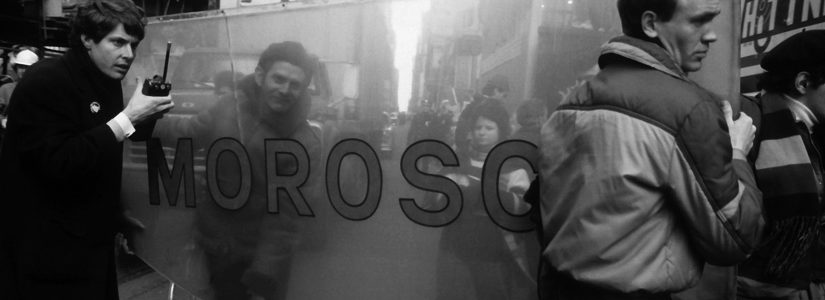
Through a Legal Lens
May 4, 2017 | by Will Cook, Associate General Counsel at the National Trust for Historic Preservation
Article from the Spring 2017 Newsletter
It’s not often that preservation lawyers have an opportunity to see the forest for the trees. Daily demolition threats, requests for emergency help, and arbitrary legal decisions usually cloud the bigger picture. This past year, however, the New York Preservation Archive Project gave me the opportunity to step away from my regular work and examine, through a legal lens, three attorneys who have helped develop the rule of preservation law not only in New York City but across the nation.
Because of their quiet modesty, one would never suspect how important Virginia Waters, Leonard Koerner, and Gabriel Taussig are to the field of preservation law. But in New York City—a place they have dedicated their professional lives to protecting—they are true “lions” of the bar. Even though these individuals never sought the spotlight, the cases in which they were involved not only made the news but helped create some of the country’s most influential legal precedents.
My first interview took place with Virginia Waters. Prepared with detailed notes about her recollections, Virginia was an interviewer’s dream. Her love of theater and cultural heritage fueled her legal work, giving her the most personal connection to historic preservation of the three interviewees. When asked what preservation meant to her, Virginia responded:
“For me, it is very important because…when I go to the theater, I sit in the theater and I say, ‘This theater is here because of me’…when I drive around buildings in the city…I feel like I’ve had an active role in saving the architectural fabric of the city for generations. It’s a good feeling.”
We also had the chance to explore Virginia’s important work in securing protection for the iconic interior of the Four Seasons Restaurant, a groundbreaking landmark decision. The restaurant, which closed in 2016, is undergoing a controversial redesign and will reopen this spring.
My next interview, with Leonard Koerner, was different. Unlike Virginia Waters, Leonard did not have a professed personal connection to preservation or a wide array of preservation cases to explore. Although Leonard would never admit it, his legal briefs and oral argument in Penn Central Transportation Co. v. New York City convinced the Supreme Court of the United States in 1978 to uphold New York City’s Landmarks Law and declare historic preservation to be an important public purpose. But until Leonard’s interview, I had never considered the myriad details that contributed to his win or how Jacqueline Kennedy Onassis helped convince City officials at a crucial political moment not to abandon the case. In this way, Leonard’s interview gave important texture to one of the most widely reported preservation cases in the nation. Leonard also confirmed—with a slight smile—the famous anecdote about appearing in the Supreme Court without any notes and shocking his boss who wanted to review them. Leonard replied: “And I wrote on a pad, ‘Mr. Chief Justice and members of the court,’ [the standard opening address at the Supreme Court] and he turned colors…I’ve thought afterwards that I should have told [him that I planned to memorize my argument] in advance.”
Gabriel, or “Gabe,” Taussig was my final interview. Gabe is another unsung preservation legal hero. His career spanned the terms of five mayors, providing a unique perspective on how New York City’s changing leadership has affected preservation. Having grown up in Queens, Gabe also shared his early recollections of Manhattan’s skyline and the “Tom Sawyer-ish” qualities of exploring places like the 1939 World’s Fair site, as well as memories of his childhood neighborhood’s history of inclusion and diversity. When I asked Gabe what he considered to be his proudest professional moment, he paused, then responded thoughtfully:
“Making sure that there is a fair process in place…Overall integrity…can only be maintained if there is a general understanding and agreement that everybody has been given a fair shake. Procedural issues are important and…it’s important to the continued viability of the Commission that people appreciate that.”
Will Cook is an associate general counsel at the National Trust for Historic Preservation. He also teaches preservation law at Columbia University. Access the full interviews in our Oral History Collection.